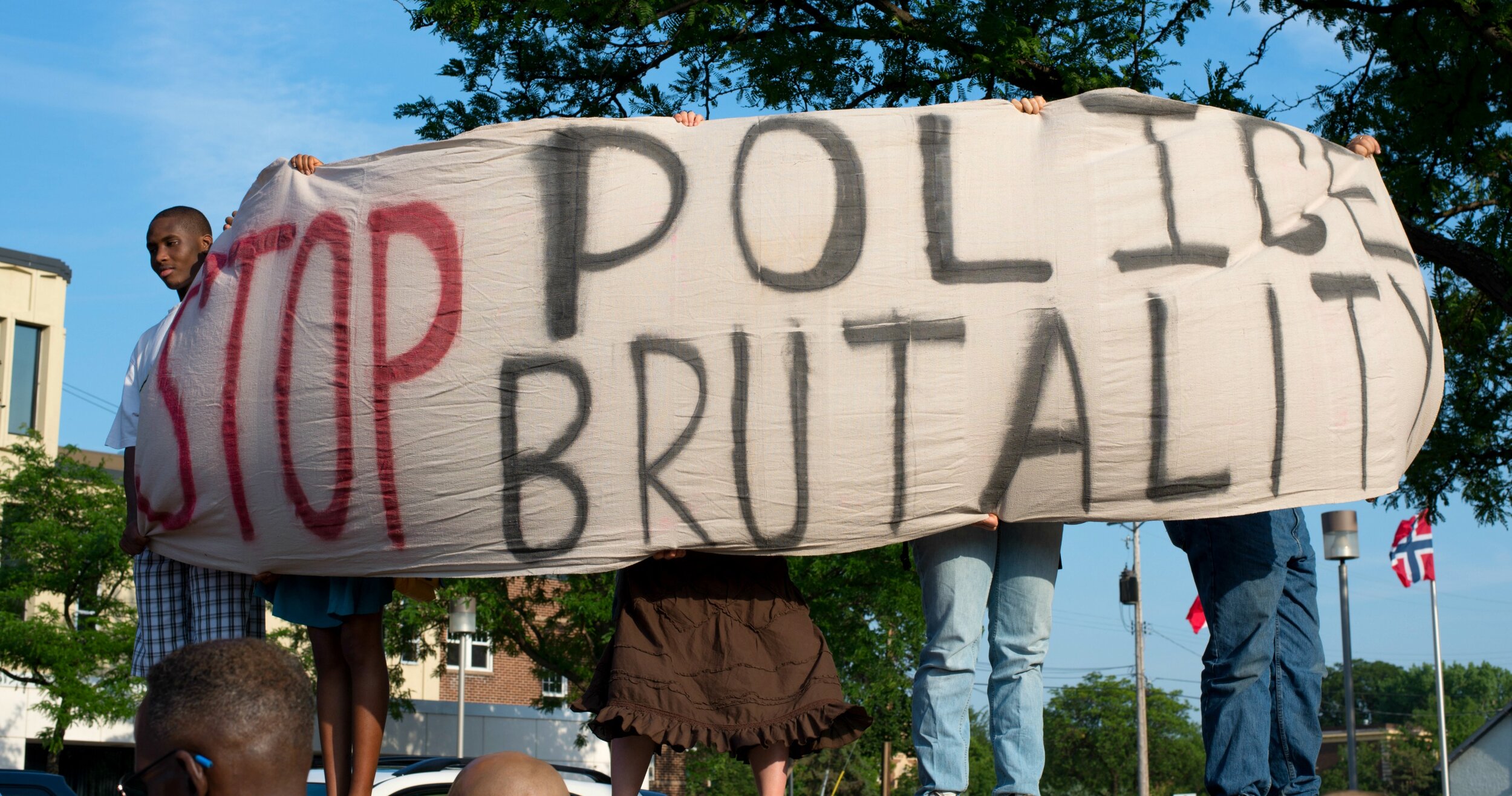It’s not “law and order,” it’s this
Stephen H. Provost
Throughout the current presidential campaign, Donald Trump has defined the relationship between the public and the police as “law and order.”
It evokes the same kind of ideas as the phrase “tough on crime” does: Police cracking down on lawbreakers and getting tough, operating outside the rules if necessary. Trump himself has suggested that his political opponents be locked up, and has led his supporters in chants that encourage it. He explicitly told Long Island police officers, “Please don’t be too nice” to suspects when they throw them in the back of the paddy wagon.
The “order” part of “law and order” can be used to condemn peaceful protests, which aren’t always orderly, even though the vast majority aren’t violent.
Joe Biden’s campaign has gone along with this tough-guy depiction of police, for fear of being labeled as “weak.” The progressive wing of the party made matters worse by adopting a call to “defund the police,” which made it sound like they wanted to abolish the police. This was, to be frank, awful messaging: Most Americans support police who enforce the law fairly, but oppose police corruption, intimidation and brutality.
“Reform the police” would have been a far better rallying cry, but the “defund” message put Biden on the defensive, forcing him to repeatedly state what should be obvious: He doesn’t support rioting and vandalism.
Seriously, does anyone?
Not anyone in the mainstream of America.
But with Trump controlling the message and Biden not challenging it, the media have reinforced it by going along.
And media outlets have followed suit because, repeating the phrases “defund the police” and “law and order” routinely on broadcast news and in print.
Words matter
This isn’t the only case in which Democrats have ceded the messaging to Trump and the Republicans. Another example: Biden has been accused of wanting to “pack the court” with extra Supreme Court justices. He finally came out with a proposal to form a commission that would look into various ways of reforming the court, but only after evading the issue for a couple of weeks. If he’d shifted the narrative from “pack the court” to “reform the court,” at the outset, he might not have taken so much flak.
There’s a similar alternative to the “law and order” messaging Trump has adopted — and Biden has failed to challenge: one that better and more broadly defines what most Americans want from police officers.
“Public safety.”
While “law and order” emphasizes rounding up and punishing the bad guys, “public safety” underscores what law enforcement should be about: keeping the public safe. Not just from criminals, but from crooked cops, poorly trained officers, and anyone else who poses a threat.
Public safety requires a broader approach than “law and order.” It involves training police officers in de-escalation techniques and dealing with mental health issues. It involves holding officers to account for endangering public safety with aggressive and even brutal tactics. It involves, not defunding police, but reallocating funds for community policing efforts designed to prevent crime as a first option.
Police are part of a larger group of publicly funded servants charged with protecting local residents —a group that also includes sheriff’s officers and deputies, firefighters, and paramedics. It would never enter anyone’s mind that firefighters or paramedics would pose a threat to public safety. The same should go for police officers.
Their mission should go hand-in-hand with other agencies charged with preserving the public safety, and that’s why “public safety” should be the watchword for police. Enforcing the law and preserving order should be secondary to that mission. If police are pursuing law and order at the expense of public safety, they’re doing it wrong.
This should be Democrats’ message.
It will be a popular one.
Featured photo: July 13, 2013, Minneapolis, by Fibonacci Blue, Creative Commons 2.0.
